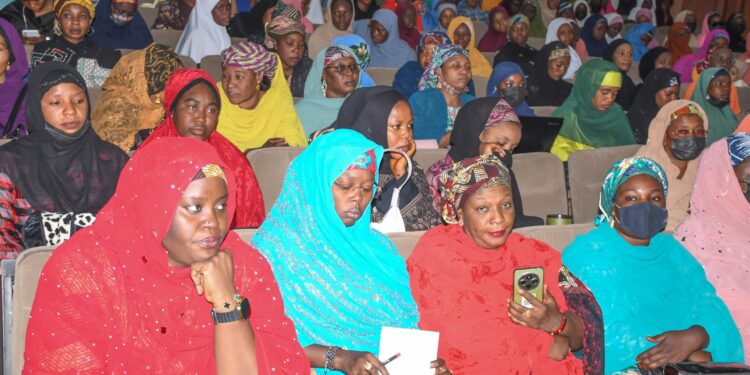The Coalition of Northern Groups (CNG) Women Wing, in collaboration with civil society organizations (CSOs), has called for the adoption of gender-sensitive tax policies in Nigeria.
The coalition emphasized the need to consider the unique socio-economic challenges faced by women, particularly in Northern Nigeria, during a stakeholders’ town hall meeting held at Mumbayya House, Kano State.
Themed “The Position of Nigerian Women on the Controversial Tax Reform Bills,” the event addressed the potential impacts of the proposed tax reforms on women and outlined equitable alternatives.
National Leader of the Coalition, Pamela Nankling Nanle, highlighted the importance of ensuring that the voices of Northern women are heard in shaping tax policies.
“This town hall meeting in Kano, the economic hub of the North, was organized to inform women and record their perspectives on the current tax reform proposals,” Nanle said.
“The Coalition is determined to ensure that Northern Nigeria’s interests and opinions are considered while proposing ways to refine the reforms for all stakeholders.”
Nanle identified several critical issues associated with the proposed reforms, including economic dependency, limited access to credit, and insufficient financial services for women.
She warned that tax increases could further hinder women’s ability to secure capital for businesses or personal development.
To mitigate these challenges, the Coalition advocated for measures such as:”Conducting comprehensive assessments to evaluate the potential impacts of tax reforms on women, particularly those from marginalized communities.
“Introducing tax exemptions or reduced rates for women-owned businesses, especially in the informal sector, to ease financial burdens and promote reinvestment.
“Expanding access to financial literacy programs, micro-credit facilities, and business development support to help women navigate the adverse effects of tax changes”.
The coalition also stressed the need to enhance social safety nets, such as unemployment benefits, healthcare, and childcare services, to counteract the regressive effects of certain tax policies.
“Expanding social welfare programs is critical for women, particularly single mothers, who bear a disproportionate responsibility for caregiving and household management,” Nanle added.
She , however call for equitable, transparent, and inclusive tax reforms that prioritize women’s empowerment and economic independence.
“As we navigate these reforms, we must foster an environment where every woman, regardless of her socio-economic status, has the opportunity to thrive,” Nanle said.











